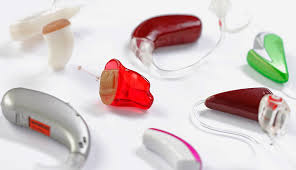The United States faces a fundamental mismatch between surging demand and insufficient capacity.
2026 Physician Fee Schedule, released in July, directs reimbursement toward remote monitoring and value-based care in the home.
Older adults can save tens of thousands of dollars annually by choosing assisted living communities over aging in place in their homes.
Unlike point solutions, Inspiren unifies resident safety, care planning, staffing, and emergency response into a single AI-powered platform.

 Uncorrected hearing loss isolates and harms older adults.
Uncorrected hearing loss isolates and harms older adults.
Comments
How to Make a Home More User-Friendly for Deaf/Hard of Hearing
Laurie suggested adding my guide as a comment. Hope anyone that reads it, gets some use out of it. TY for letting me add this, Laurie. :-)
https://www.yourathometeam.com/deaf-or-hard-of-hearing-home-improvements/